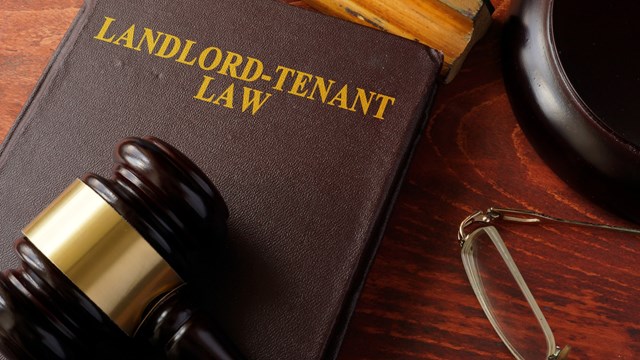A group of New York City Council members, led by Ydanis Rodriguez of the 10th District, recently re-submitted legislation that aims to give small business owners more agency when renegotiating the leases for their commercial spaces. Variations of this bill have been kicking around for some time, but the latest incarnation has been dubbed the 'Small Business Jobs Survival Act' (SBJSA).
The website dedicated to the SBJSA describes its mission as such:
“It offers the only opportunity to restore economic equality to our business owners, save our art and cultural institutions, maintain the character of our neighborhoods, save the best pathway to social mobility for the majority of low-income families, and reestablish NYC as the Gateway for the American Dream.”
The bill proposes to do this via a three-pronged approach that involves:
- establishing a 10-year minimum for leases and right to renew, to allow businesses adequate time in which to establish themselves at a particular location
- granting tenants more agency when negotiating renewal by turning landlord/tenant disagreements over to third-party arbitration
- restricting landlords from passing property taxes down to businesses.
While some small business advocates support the motivation behind the bill, they're skeptical about whether it will be executed effectively. Writing in an opinion piece for Metro this past March, attorney Marni Halasa voiced her hesitation:
“I should be thrilled that Speaker Corey Johnson and the majority of City Council members state support for the bill. But after my experience as a candidate for City Council District 3 last year, I am wary. I’m concerned when I read that the bill needs to be 'modernized' to accommodate landlord incentives, 'special zones' to keep out formula retail, and that the crisis is 'not about the rent but also about water and sewage rates.' I'm not against other measures that could help, but it has been and always will be about the rent. Period.
“But most troubling is the obscene amount of real estate money that flows to City Hall coffers. It’s no secret that real estate interests have stymied the 30-year-old bill for decades.”
A City Council rep did not reply to email requests from The Cooperator for comment. Councilman Rodriguez, who represents a district that includes Washington Heights, Inwood and Marble Hill, said in a statement quoted in Crain's New York Business: “Small businesses create most of the jobs in our city. They are in crisis and we have to support them. The many conversations about this bill underscore its importance.”
The most vocal opposition to the bill comes from the Council of New York Cooperatives & Condominiums (CNYC), a nonprofit organization that represents the city’s co-ops and condos. As Crain's previously reported, the CNYC conducted research showing that “1,525 co-op buildings throughout the city collectively house 6.5 million square feet of retail space.” The shareholders of these co-ops rely on the rent coming from commercial tenants to help offset the costs of operating their residential properties. The issue for the CNYC is that the proposed legislation hobbles the ability of those co-ops to choose the right commercial tenants for their associations and charge them rent accordingly.
“The people who own these co-op spaces live in the city, pay local taxes, and pay very high real property real estate taxes on their apartments,” says CNYC Chairman Stuart Saft. “We don't know who the owner of the commercial leases may be, or where they live. Why would the City Council ignore the rights of the people who live in the building in favor of somebody who might not even be an New York City resident, vote, or pay taxes? Nobody is giving any thought to the fact that one party is guaranteed to be intricately involved in their communities and in their city, while that's not necessarily true for the commercial tenant.
“And point number two,” Saft continues, “if I'm living in a building and there's, say, a bar or a souvenir shop in the ground-floor retail, why does the City Council get to tell me that I have to leave that business in place, as opposed to a tenant that could really benefit the building? Even with the third-party mediator involvement, that third party is telling you what rent you can charge and, as such, should the tenant be willing to pay that rent, then it basically owns the space. While I don't personally have a commercial business in the base of the building in which I live, and thus no ax to grind, this is just wrong.”
Jockeying for Control
It's worth noting that, while opponents of the bill are quick to label it as “commercial rent control” -- and that may or may not be valid, depending on how one defines the term – the legislation does not fix any pricing. It simply requires that landlords and tenants introduce a third-party mediator into the mix should they not agree on rent terms during re-negotiations. From there, the mediator would determine a fair rent by analyzing several variables, including – but not limited to – cost of maintenance and operation of the entire property; services furnished by the landlord; the condition of the space; current interest rates on bank deposits and bonds; fair market rates for comparable properties in the area; longevity and location of the business; and the reliance of the business on this particular location.
“The law really sets some rules for binding arbitration for settling disputes about lease renewal and rent increases,” explains Austin T. Brown, an associate attorney at the law office of Frank J. Rio. “The terms of the law can mostly be contracted around, or don't apply when there is a hardship to the landlord. In other words, if the landlord's costs go up considerably, the arbitrator is supposed to take that into account during re-negotiations.
“It's definitely not 'commercial rent control,'” Brown continues. “Commercial leases go up pretty regularly and tend to be for longer terms. A standard 5- or 10-year commercial lease will have a 3-5 percent increase every year of that lease, and that wouldn't be changed by this. It may just make it harder for the landlord to use a 500 percent increase as a de facto eviction notice in the hopes of getting a new tenant – say an ATM lobby for a big bank, a national drug store, or a major burrito chain – that will be able to absorb a 25 percent higher rent.”
A hearing to discuss the bill has yet to be confirmed. The Cooperator will follow this story as it develops.
Mike Odenthal is a staff writer/reporter at The Cooperator.







Leave a Comment